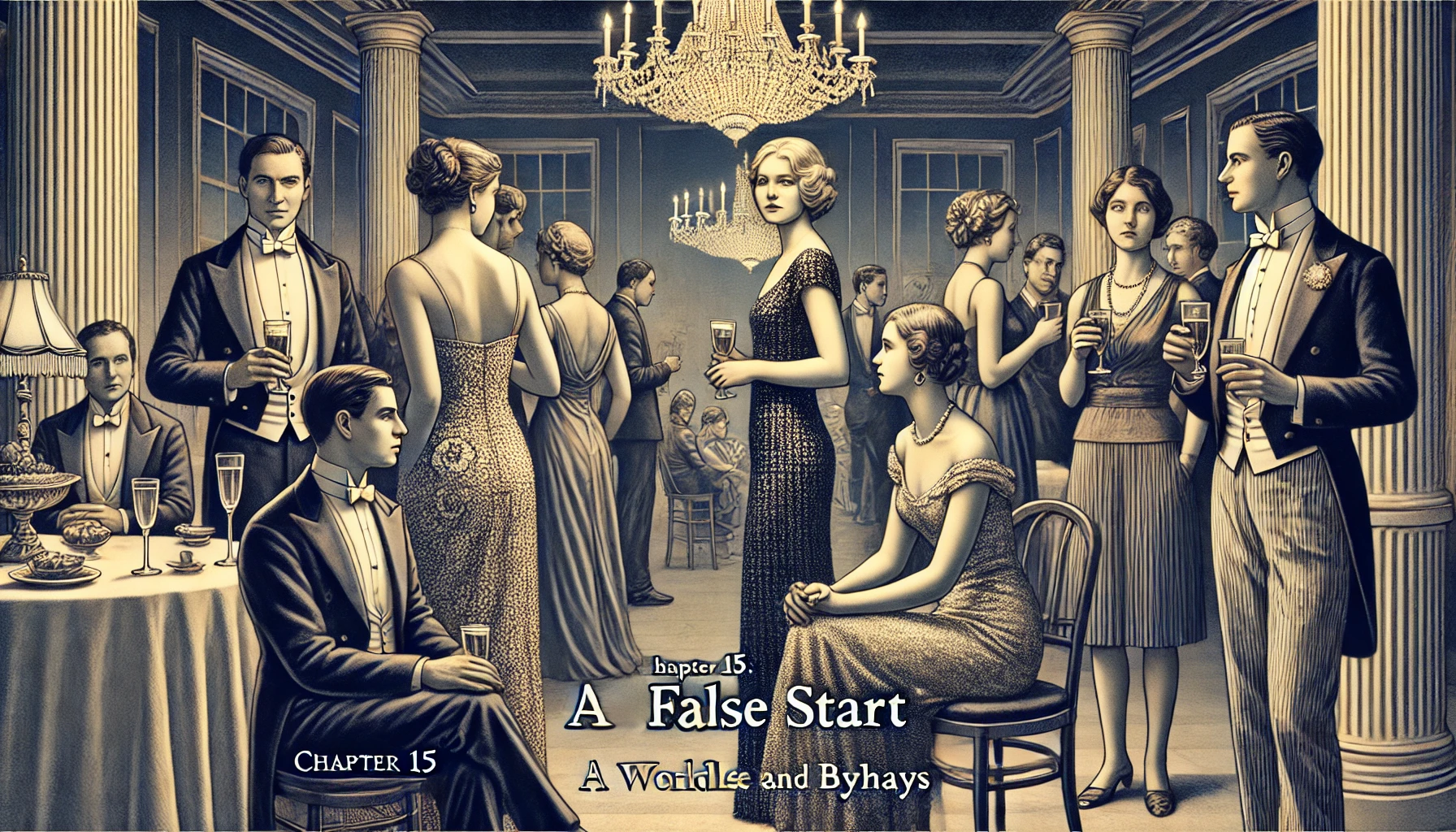Chapter 15 — A False Start
byChapter 15 – A False Start offers a critical examination of the imbalance in cultural refinement between American men and women, particularly within elite and international circles. While American women are praised for their grace, tact, and adaptability in cultured environments, the same cannot be said of their male counterparts. The author attributes this disparity to a national focus on material achievement at the expense of broader intellectual development. This skewed value system, cemented during America’s post-Civil War industrial boom, encouraged young men to chase financial gain rather than cultivate aesthetic or intellectual depth. As a result, many grew into men of wealth but not of worldliness. The flaw, the author suggests, lies not in ambition itself, but in how narrowly it has been defined.
This cultural shortfall is made more apparent when American men are placed alongside their European peers. In England, public service is viewed as honorable; in France, artistic and intellectual pursuits are respected as integral to society. By contrast, American culture has historically admired success only in the commercial or athletic realm. The arts are often dismissed as impractical, while philosophy, literature, and civic engagement are seen as indulgent distractions. Even though sports provide an outlet for discipline and teamwork, they cannot substitute for a broader understanding of the world. The result is a generation of successful but socially underprepared men, often perceived abroad as lacking depth. Their shortcomings are not from incapacity but from a society that rarely demanded more than financial ambition.
Chapter 15 – A False Start argues that this overemphasis on material progress not only stunts individual potential but also weakens America’s global cultural standing. In foreign salons, universities, or diplomatic gatherings, American men frequently find themselves awkward or uninformed, reliant on wealth to earn respect rather than insight or perspective. While American women, having embraced education in languages, literature, and social nuance, often shine in such company, their male peers struggle to match that sophistication. This imbalance is more than personal—it reflects the nation’s collective image. By prioritizing business acumen over cultural literacy, the U.S. risks appearing one-dimensional to more balanced societies. The author urges reconsideration, advocating for a broader definition of success—one that values intellect, creativity, and service alongside profit.
The chapter doesn’t reject ambition—it questions its focus. Economic growth has lifted the nation, but without equal attention to humanistic and civic education, that progress rings hollow. American men are capable of greatness beyond finance; they simply need permission and encouragement to pursue it. A well-rounded life, the text implies, should include not only achievements in commerce but also fluency in ideas, arts, and public affairs. The author believes a recalibrated system—where boys grow into men who can speak both in boardrooms and libraries, who can contribute in debates as well as negotiations—would produce more complete, fulfilled individuals. It’s not a call to abandon capitalism, but to temper it with curiosity and conscience.
Chapter 15 – A False Start subtly explores how shifting educational priorities could correct this imbalance. If boys were encouraged to study beyond economics and engineering—to embrace literature, ethics, history, and music—they might grow into men better equipped for both leadership and diplomacy. Schools and families that emphasize critical thinking, empathy, and global understanding would help shape men with richer inner lives. These men would be more than executives—they’d be thinkers, artists, and stewards of culture. A society built on such individuals wouldn’t just be wealthier—it would be wiser. And in a world increasingly shaped by global dialogue, that wisdom matters just as much as money.
In recent years, efforts to broaden educational scopes have slowly taken root. Liberal arts programs, interdisciplinary studies, and community service initiatives have started reshaping how young people engage with the world. Studies have shown that employers increasingly value emotional intelligence, creativity, and adaptability—traits rarely nurtured by profit-driven curricula alone. Chapter 15 speaks to this very shift, emphasizing that personal and national strength comes from a blend of intellect and ambition. Wealth alone can impress, but only depth can connect. If American men are to thrive globally, they must be taught not just to win, but to wonder, question, and reflect.


